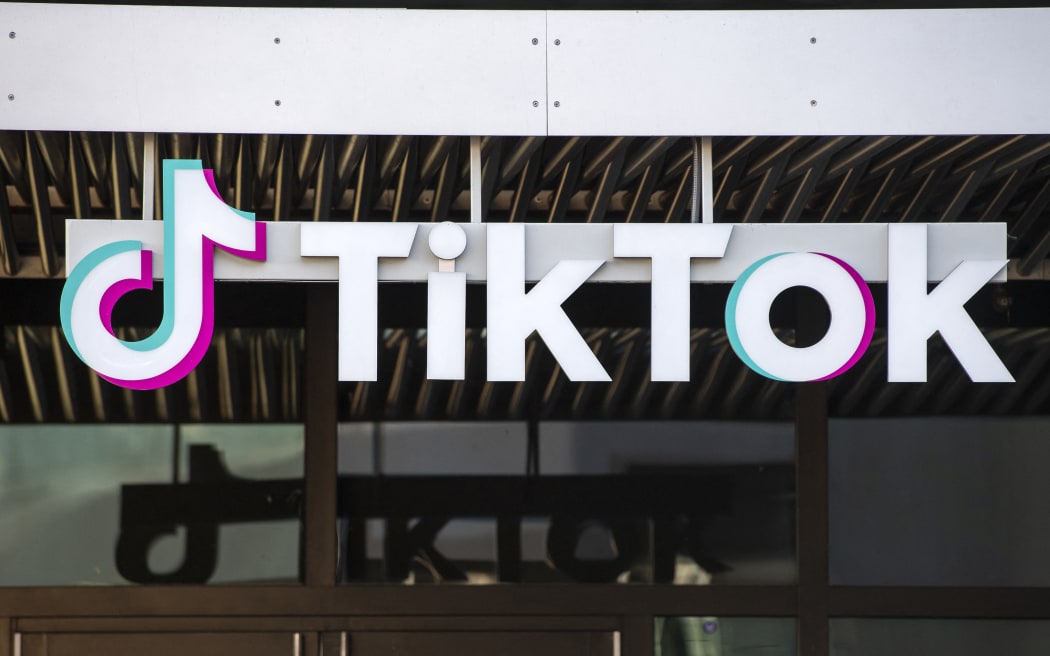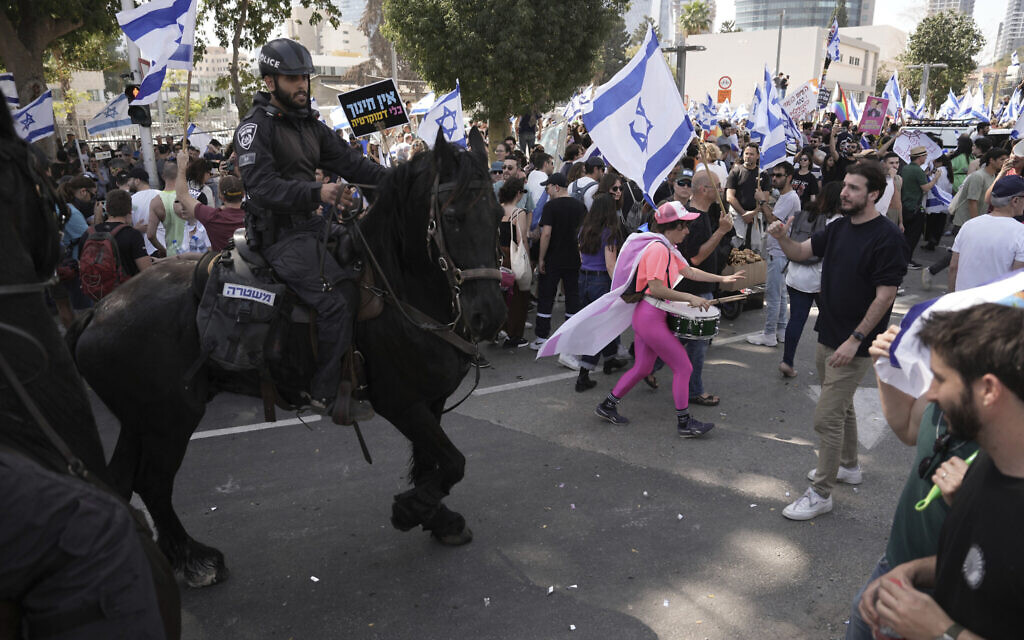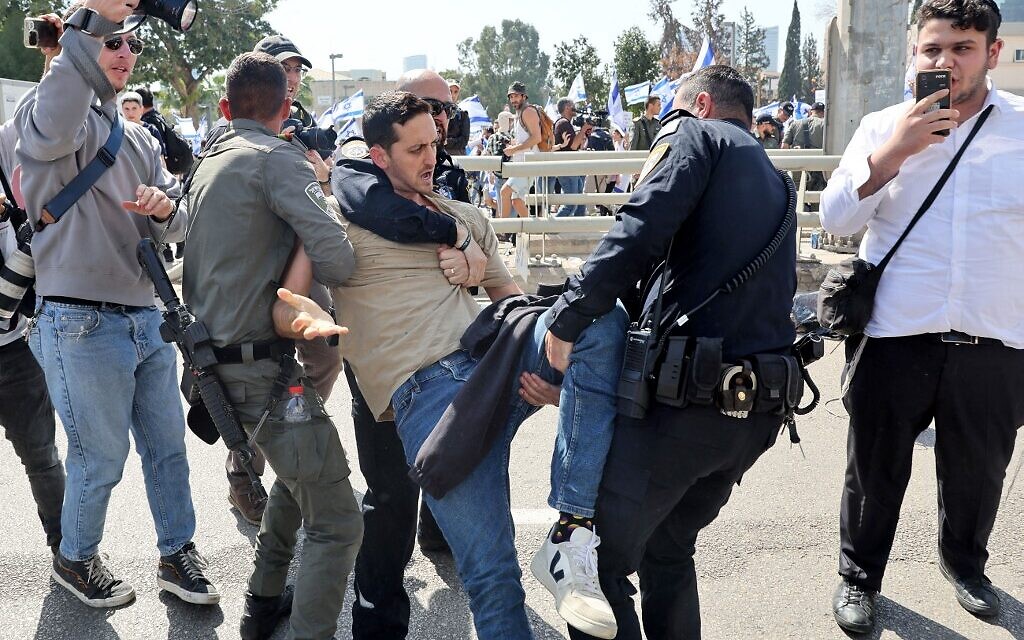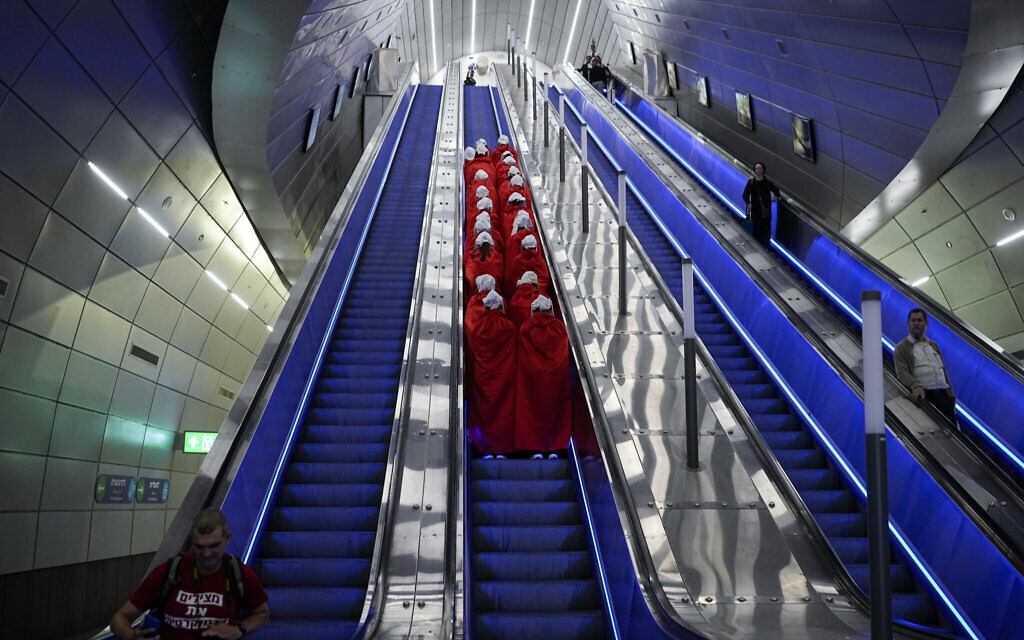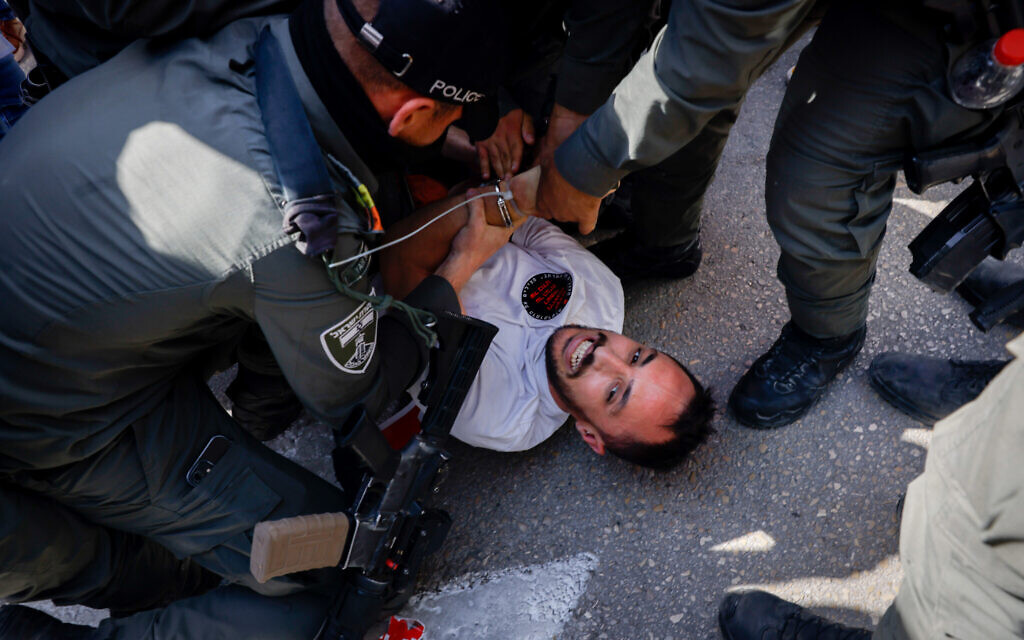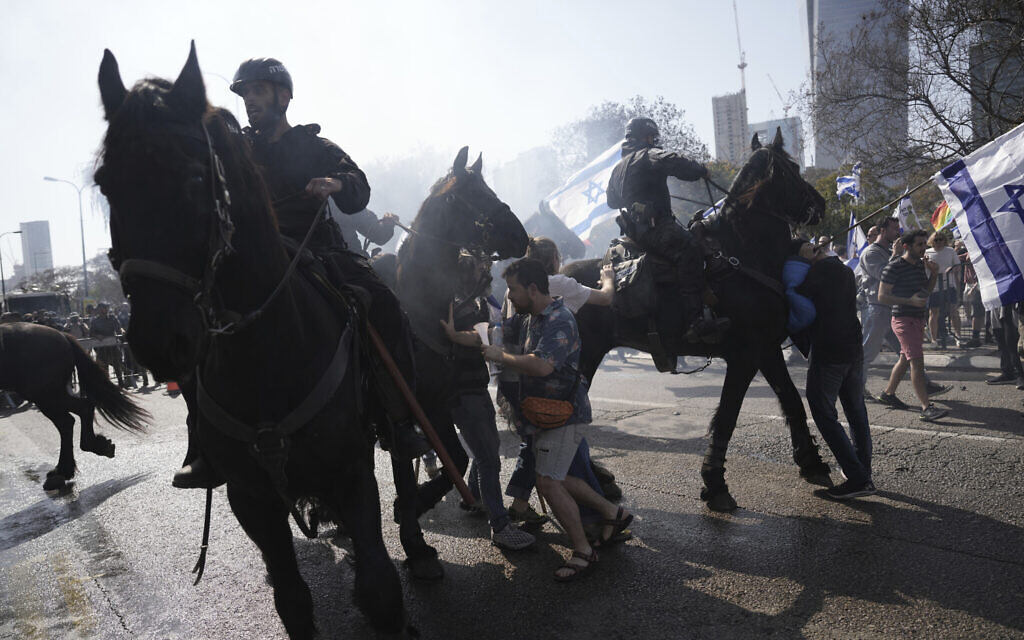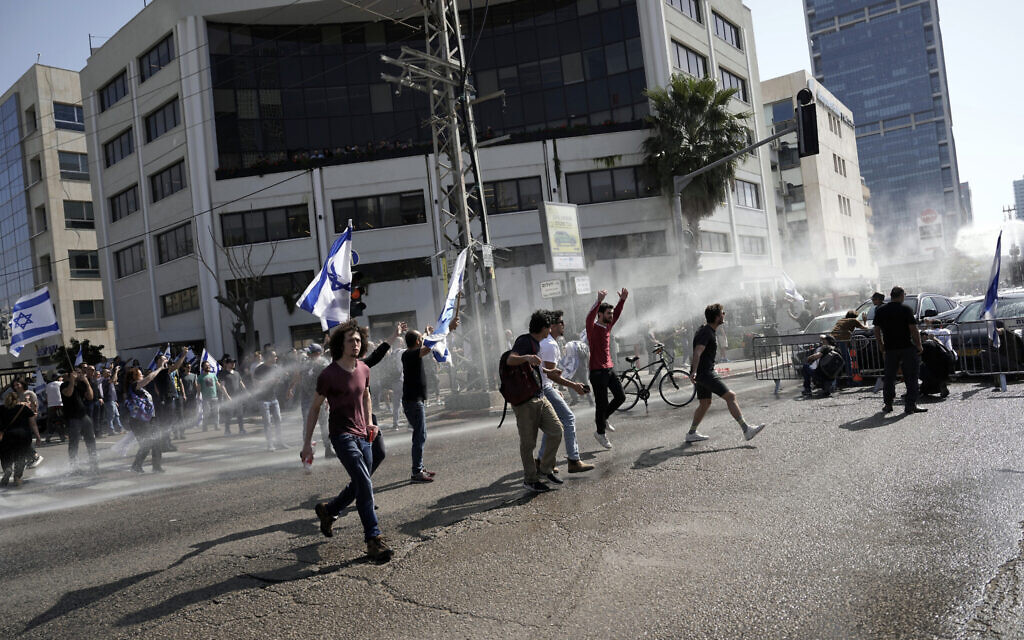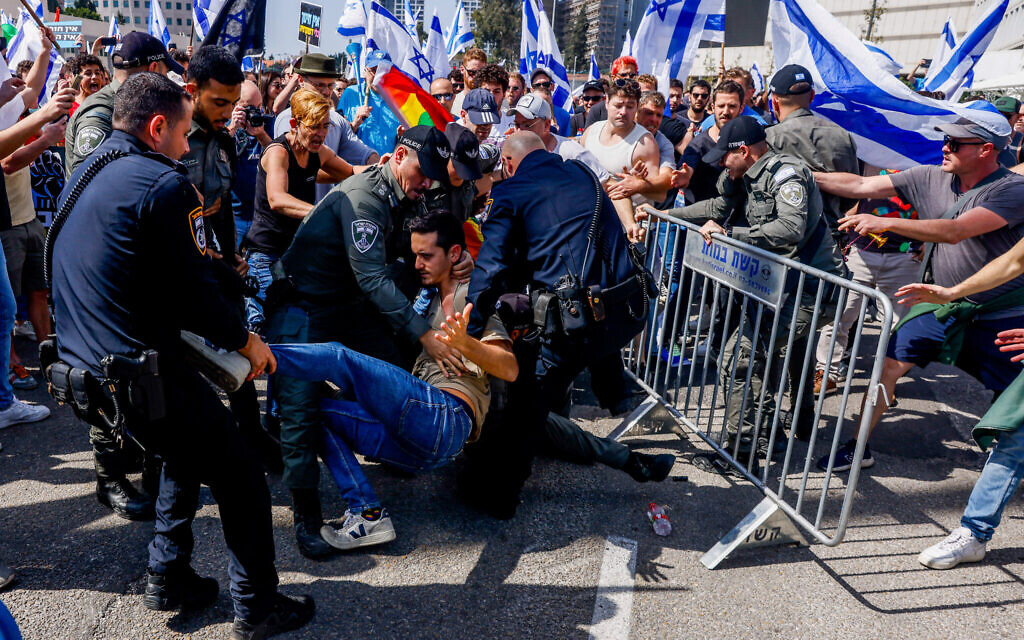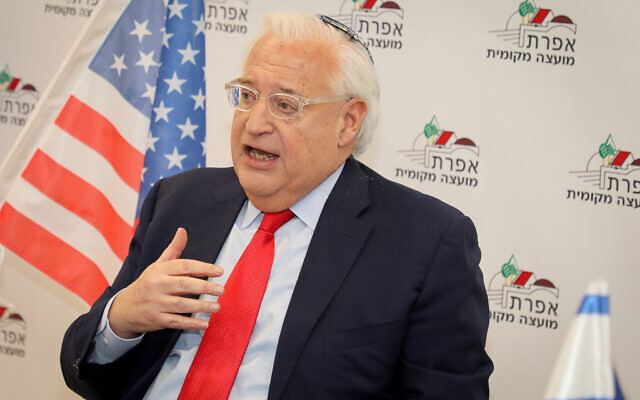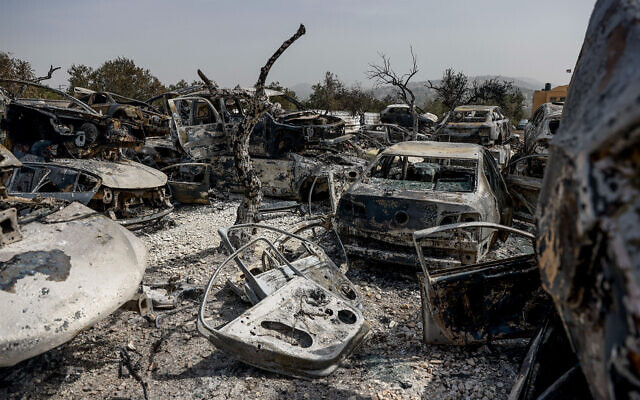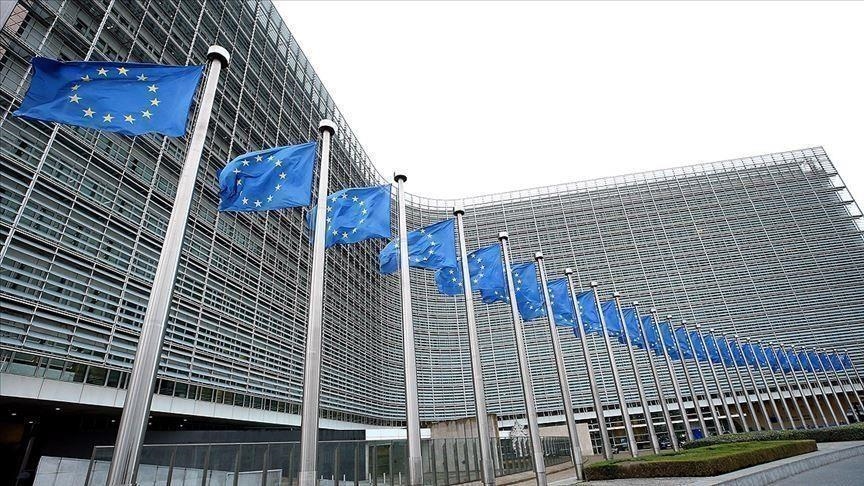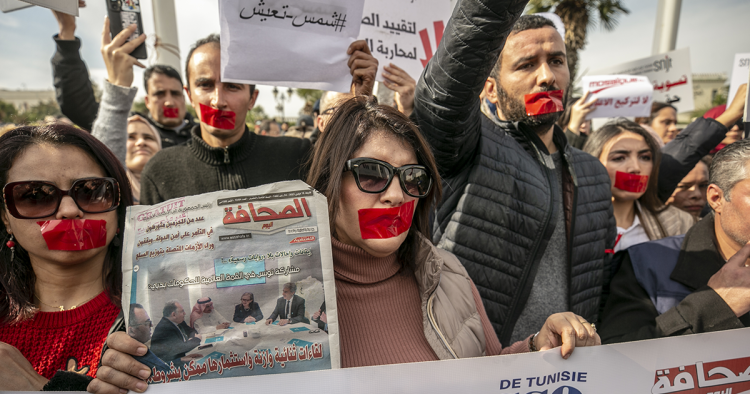Exposé: Forced Labor of Migrant Kids in US for Major Brands

We speak with the Pulitzer Prize-winning reporter Hannah Dreier, who revealed in a major New York Times investigation the widespread exploitation of migrant children in some of the most dangerous jobs in the country. In response, the Biden administration on Monday announced it would carry out a broad crackdown on the use of migrant child labor in the United States, vowing stricter enforcement of labor standards and better support for migrant children. “These kids are just on their own in these situations, with very little resources and very few ways out,” says Dreier.
We are also joined by Gregory Chen, senior director of government relations for the American Immigration Lawyers Association, who says migrant children need better protection from unscrupulous employers and others who would seek to exploit them. “Children don’t have any knowledge or understanding of what their legal rights are,” says Chen.
Transcript
AMY GOODMAN: We begin today’s show looking at a shocking investigation by The New York Times exposing the forced labor of migrant children as young as 12 at factories across the United States. Over 100 unaccompanied migrant children, mostly from Central America, describe grueling and often dangerous working conditions, including having to use heavy machinery, being subjected to long hours and late-night shifts at facilities that manufacture products for major brands and retailers, such as Hearthside Food Solutions, the makers of Cheerios, Fruit of the Loom, Whole Foods, Target, Walmart, J.Crew, Frito-Lay and Ben & Jerry’s. Others were forced to work as cleaning staff at hotels, at slaughterhouses, construction sites, car factories owned by General Motors and Ford, in serious violation of child labor laws. At least a dozen migrant child workers have been killed on the job since 2017, according to The New York Times.
The disturbing revelations prompted the Biden administration to announce Monday a wide initiative to crack down on the labor exploitation of migrant children. White House Press Secretary Karine Jean-Pierre called The New York Times investigation “heartbreaking.”
PRESS SECRETARY KARINE JEAN-PIERRE: At the president’s direction, the Department of Labor and the Department of Health and Human Services announce new actions to crack down on child labor violations and ensure that sponsors of unaccompanied migrant children are vigorously, rigorously vetted. Child abuse — child labor is abuse, and it is unacceptable. Again, it is unacceptable. This administration has long been combating a surge in child exploitation, and today the Department of Labor and HHS announce that they will create a new interagency task force to combat child exploitation. They will also increase scrutiny of companies that do — that do business with employers who violate child labor laws, mandate follow-up calls for unaccompanied migrant children who report safety concerns to the HHS hotline, and audit the sponsor vetting process for unaccompanied migrant children over the next four weeks.
AMY GOODMAN: The Labor Department has already launched an investigation into Hearthside Food Solutions, which produces and packages food for other major companies, like General Mills, Frito-Lay and Quaker Oats. Democracy Now! reached out to Hearthside Food Solutions to invite a company spokesperson to join us on the program. They declined the request but sent us a statement to read on air. The statement reads, in part, “We take the allegations in the article seriously and have committed to these immediate next steps: We have engaged a renowned, global advisory firm, and an independent law firm, to conduct an independent review of Hearthside’s employment practices, third-party employee engagements, plant safety protocols, and our standards of business conduct. Following the review, we are committed to enhancing our policies and practices in line with our advisors’ recommendations,” they said.
For more, we’re joined by two guests. Hannah Dreier is the Pulitzer Prize-winning reporter at The New York Times whose major investigation, published Sunday on the front page, is headlined “Alone and Exploited, Migrant Children Work Brutal Jobs Across the U.S.” Her follow-up piece, published Monday, headlined “Biden Administration Plans Crackdown on Migrant Child Labor.” She’s joining us from here in New York.
You traveled to Alabama, Florida, Georgia, Michigan, Minnesota, South Dakota and Virginia for this story, speaking to more than a hundred migrant child workers in 20 states, Hannah. Can you lay out the scope of this investigation, what you found? And were you shocked by the speed of the Biden administration’s response? And your evaluation of what that is?
HANNAH DREIER: Thank you so much for having me, Amy.
I mean, when I started this reporting, I thought that we might find that some kids were working agricultural jobs, maybe dishwasher jobs. I never anticipated that we would find the scope of children working these really industrial, adult, dangerous jobs in all 50 states. So, really, what I discovered is, I think, a child labor scandal in this country. We have more and more kids coming over without their parents, and they’re being released to situations where they have to pay their own rent, provide their own living expenses. They’re under huge pressure to send money back home. And they’re ending up in some of the most brutal jobs in this country. So, I talked to kids outside of slaughterhouses when they were getting off their shifts at 7:00 in the morning. I talked to kids who are working as roofers at the top of buildings, kids who had gotten seriously injured. Like you say, we found many examples of kids who had died on these jobs.
And it’s in the supply chain of, you know, so many corporations. At the end of this reporting, I just felt like it was inescapable, like so many of the things that I personally consume, like Cheerios, have this labor somewhere in the supply chain.
And yeah, I mean, the response was overwhelming. We were told that the Biden administration worked over the weekend, and Biden approved these changes like on Sunday afternoon, a day after the story ran. It’s really gratifying. The people who I’m talking to believe that there’s still a lot to be done, but some of these changes really do seem like they will start to address this problem.
JUAN GONZÁLEZ: And, Hannah, in your investigation, how recent is this development? In other words, there was enormous pressure following the end of the Trump administration to remove unaccompanied minors from detention facilities. Is this a recent phenomena, or did this — has this been building for years now?
HANNAH DREIER: This is something that I think has been building for maybe the past 10 years, and part of it has to do with the changing nature of the children who are crossing the border. Ten years ago, there were far fewer children, maybe 6,000 children a year. Now we’re seeing 150,000 a year. And those children were often coming to reunite with their parents. So, they would cross the border and be released to a parent, who often would take care of them. Often that parent would have paid to have them brought up. And now what we’re seeing is it’s much more common for parents to be sending these children, and the children are under pressure to send back remittances. So the dynamic of who’s coming has changed.
And we’ve also seen a labor shortage. I’ve seen a couple dynamics that have sort of created a perfect storm for this phenomenon to really explode since 2021. And what the people who work with these kids out in the field are telling us is that they’ve seen this huge shift in the last three years — middle schools where every eighth-grader in the last three years has started working, federal investigators who used to focus on sex crimes and are now instead focusing on pulling 12- and 13-year-olds out of factory jobs. It’s been sort of a slow shift, and then, in the last two or three years, this really rapid change.
JUAN GONZÁLEZ: And your story indicates that HHS Secretary Xavier Becerra did put enormous pressure on other government agencies, as well as his own agency, to move the unaccompanied minors out of the detention facilities. How do you assess the role of Secretary Becerra?
HANNAH DREIER: You know, a lot of advocates, lot of people in immigration world were really excited about Becerra and about the change that they thought might happen at HHS after the Biden administration took over. But what happened was there was this huge crunch at the border, where all of a sudden children were sort of getting piled up in jails that are run by Customs and Border Protection, because there wasn’t enough capacity in the child welfare organization that’s supposed to take care of these children. That’s Health and Human Services. So there was suddenly all of this media attention to kids sleeping on the floor, sleeping under those silver space blankets.
And what people inside HHS say is that Becerra started putting immense pressure on them to discharge these kids more quickly. So, every day would start with a call, and the call would be “How many kids have been discharged from care today? How many kids are still there?” And what people who work at all levels of that agency say is that it created a situation where kids were being pushed out too quickly to people who weren’t vetted. And a lot of people inside the agency told me, you know, “He would always say, ‘Why can’t we run this like an assembly line? We need to be more efficient. Henry Ford would never have gotten rich if he had run his assembly lines like this.’” And I was very skeptical. I mean, that’s a really intense thing to say when you’re talking about the most vulnerable children in this country. But somebody eventually leaked us a video of him sort of berating staff and saying that on tape. So, I think he himself is probably under a lot of pressure, but there’s a lot of disappointment within the agency and among immigration advocates about how that’s been handled.
AMY GOODMAN: Hannah, I’d like to ask about the children. If you could tell us some of their stories? That’s really the heart of your story, as you talk about Cristian, who works in a construction job instead of going to school, 14 years old; Carolina, who packages Cheerios at night in a factory. Talk about each of them and also how you found them. How difficult was it for you to find them?
HANNAH DREIER: I mean, these kids were not hard to find. And I think that’s part of what you’re seeing with these Department of Labor reforms. Inspectors just have not been looking for them in a proactive way. I came to — I went to different cities and towns, and usually the next day I already was speaking to children who are working these illegal, exploitive jobs.
I talked to Cristian in southern Florida. He was living in a house full of other unaccompanied minors, other kids who had come across the border without their parents. All of them were working full time. None of them had gone to school. Cristian had come when he was 12, two years ago, and immediately, the next day, started working full time in construction. He told me that he doesn’t know how to read, and he would like to learn English, he would like to learn how to read, but he can’t go to school because he has a debt to pay off, he has to pay rent. And I went to a construction site and talked to him as he was putting the roof on a building, and he told me he had already fallen twice that year. He was working with power tools. He was just sort of balancing precariously on the edge as he was trying to bend some rebar. And, I mean, he’s a child. It’s not what he wants to be doing. But he was released to this situation, and there’s just sort of no support there for him to get out of it.
And in Michigan, I talked to a lot of children who are working in a factory packaging Cheerios. They also package Lucky Charms and Cheetos. And these are kids who were in school. I met them at school. And some of the kids I met at school told me, “Oh yeah, we have to leave early now because we have to go to our factory job.” And I was just shocked. But I went to this factory, and, sure enough, there they were, walking out after the shift. And this is a place where you’re working with really industrial machinery. The machines have sliced off people’s fingers. One woman who was doing this kind of work was pulled in by a hairnet, and her scalp was ripped open. I mean, it’s a serious, adult kind of place to work. And these kids are balancing it with, you know, seven days of school, as well, so they’re exhausted.
AMY GOODMAN: And tell us about Nery Cutzal from Guatemala, how they met their sponsor. Again, these children are here legally. And then talk about the children who have died.
HANNAH DREIER: I mean, I think that’s such an important point. These are not undocumented children. They’re not children who snuck in, and nobody ever found out about them, and now they’re sort of living a subterranean life. These are children who had turned themselves in at the border, usually asked for asylum, and were released to live with somebody who the government thought would protect them. The government can’t release them unless they’re sure that it’s a trustworthy adult who is taking these kids on. And in some cases, they’re being released to complete strangers.
So, in Nery’s case, he met a man on Facebook when he was 13. The man said that if he wanted to come to the U.S., he would help him. He would let him go to school. And instead, Nery shows up; the man picks him up from the airport and immediately hands him a list of debts that this kid now has. So he’s charging him thousands of dollars for his journey to this country. He charged him for filling out the paperwork that he had to send to the government in order to get him released. He charged him $45 for the dinner of tacos that they had that night. And then he told Nery that he had to go find his own place to live, find a job, and start paying back this debt. And, you know, Nery doesn’t speak any English. He has never worked. He was in school when he was in Central America. And we’ve seen the text messages between him and this man. The man starts threatening him and saying, “You don’t matter to me. I’m going to mess you up.” He threatened Nery’s family. And these kids are just on their own in these situations, with, you know, very little resources and very few ways out.
JUAN GONZÁLEZ: You mentioned that federal inspectors generally are not looking for these kinds of violations, but I’m sure that several of these workplaces that you went to were unionized, to one degree or another. Is there any sense on your part that the organized labor movement was — that leaders in some of these places were aware of this? Because they could certainly complain, and therefore trigger some kind of inspection.
HANNAH DREIER: So, many of these children are coming in through staffing agencies. I had initially thought that the unions would be a really important resource in this reporting. And when I went to them, they told me, “No, there’s no children here. You know, we have these other sort of workplace issues.” But then, in some cases, I would go back to the same workplace and see children on the night shift.
And I think part of what’s going on here is there’s sort of two labor streams. There are the official employees, and those are people who have to provide government IDs. There’s a lot more regulation and protection. And then there are these kids who come in through the staffing agencies. And that’s like a total free-for-all, where the staffing agencies — people who work at the staffing agencies have told us that they know they’re sending children to work at these factories. People who sent children to work packaging Cheerios say they knowingly did this and that the factory knowingly accepted these kids. But because there’s sort of this one layer of remove, the factories don’t get in trouble. It’s the staffing agencies that get in trouble when there’s a crackdown.
AMY GOODMAN: And the children who have died, Hannah?
HANNAH DREIER: I mean, child labor laws exist for a reason. They’re not just there because kids should go to school and they should get enough sleep. They’re really there because this work is dangerous. Kids are much more likely to get injured on the job. And they’re supposed to protect kids’, like, physical safety.
So, what we found, talking to these kids who are working jobs that they’re not supposed to be in, that are illegal for children, is that the rate of injury is extremely high. And in some cases, children have died days after being released to a sponsor. In one case in Alabama, a 15-year-old fell 50 feet off of a warehouse where he was helping replace a roof. It was his first day on the job. He had been released to his brother. Here in Brooklyn, where I live, a 14-year-old was killed on his bike. He was a food delivery worker. And he was living in a house full of strangers, trying to send money back to his family, and was hit by a car. Another case that really struck me was a 16-year-old who died when he fell out of an earth mover that he was driving. And, to me, the idea that a 16-year-old would be in a position to be driving a 35-ton vehicle is just inconceivable. But this is what happens when you have kids working the jobs that for almost a century they’ve been specifically prohibited from being in.
AMY GOODMAN: I want to bring Greg Chen into this conversation. Hannah Dreier, who we’re talking to, is the Pulitzer Prize-winning New York Times reporter who did this just jaw-dropping exposé, “Alone and Exploited.” Gregory Chen is the senior director of government relations for the American Immigration Lawyers Association. Can you talk about, legally, what recourse these children have?
GREGORY CHEN: Thank you so much for having me on the show here.
And this is an extremely challenging situation. And when you use the word “legally,” what recourse do these children have, the first thing that comes to mind for me, as a practicing lawyer who represented children back in the 1990s in San Francisco, is that children don’t have any knowledge or understanding of what their legal rights are. Many of these children who are coming from different countries, that have very limited English-speaking capacity or skills, and they simply won’t understand that there is legal system of labor laws to protect them. And they are also afraid that their immigration status here in the United States is going to be in jeopardy if they report any such violations.
JUAN GONZÁLEZ: And I wanted to ask you — in terms of response of the Biden administration, this is certainly one of the fastest responses by a government agency to an exposé that I can recall. Your sense of what some of the proposals are of the Biden administration to address this issue?
GREGORY CHEN: So, the announcements by the Biden administration are laudable in terms of the speed that they’ve implemented them or they’ve announced them. By and large, what they are talking about here is increasing Department of Labor and Health and Human Services investigations of these kinds of situations and also improving the screening and vetting of families that might sponsor these children, usually relatives who are going to take care of the children after they are released from government custody, which happens when they first arrive, and then, in addition, after these children are released, what kinds of post-release services are going to be given to these children to make sure to check on them, so that after a month or three months, you know, are they still living there, what is their health situation, are they going to school. Those are all steps that the federal government has announced they will be doing more of, because they haven’t been able to check on all these families.
What is missing here — and this is very important, given the fact that, as Hannah described — and what we’re seeing statistically is that the number of children coming to the United States, particularly from Central American countries, has increased dramatically, from — about 10 years ago, we had 13,000, 14,000 children coming every year. Now we are looking at 130,000 children that came just last year. And these are children who are fleeing persecution, violence and poverty. And many of them are afraid to come to the United States because of the challenges of crossing the border and because the United States has made it much more difficult to seek asylum. And when they get here, if they don’t have stable humanitarian legal release, such as asylum, they’re going to be afraid to report anything bad that happens to them while here in the U.S., including labor violations. So, what the Department of Homeland Security needs to do, and the Biden administration needs to do, is to look at more ways of ensuring asylum access and humanitarian protection for children and for other people who are coming here seeking protection.
JUAN GONZÁLEZ: And just briefly, because we have less than a minute on this segment, but I wanted to ask you in terms of the penalties that employers of these staffing agencies face. Just last week, the Department of Labor found a company called Packer Sanitation Services guilty of having 102 children as young as 13 years old working across eight states, and it only got a $1.5 million fine for that.
GREGORY CHEN: Yeah, so, the important thing here is that we need more resources put into investigations to ensure that fines and any other penalties can be imposed, and that Congress should be looking at this from a labor perspective. But I would also urge Congress to look at reforming our U.S. asylum laws and our U.S. immigration system overall. The fact is that the asylum system is closing, is becoming more restrictive, both because of congressional pressure and because the Biden administration is putting more blocks on asylum seekers being able to come here. And we haven’t had Congress reform our humanitarian or our family or employment-based visa system in three decades now. That’s 30 years where people who are coming here don’t have the pathways needed to have a safe, stable life here in the United States. And we have thousands, millions of people who are living here, including children, who are in that tenuous status. Anybody who is in a tenuous status that doesn’t have permanent legal status is going to be fearful of reporting labor violations like this. And that vulnerable, second-class population in the United States is not something that’s healthy for the country, even as immigrants contribute so much to our society, our communities and our economy.
AMY GOODMAN: Well, we want to thank you both so much for being with us, Gregory Chen, with the American Immigration Lawyers Association, and Hannah Dreier, for your superb exposé in The New York Times. We’ll link to your piece, “Alone and Exploited.” And just to read a few lines from that piece to underscore, “[While] H.H.S. checks on all minors by calling them a month after they begin living with their sponsors, data obtained by The Times showed that over the last two years, the agency could not reach more than 85,000 children. Overall, the agency lost immediate contact with a third of migrant children.”






